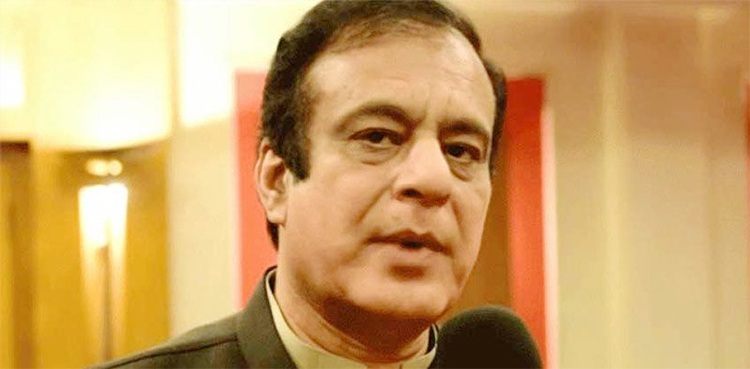Weakening state is unforgivable crime, says Shibli Faraz

ISLAMABAD: Federal Minister for Information and Broadcasting Senator Shibli Faraz has said that the act for weakening state is an unforgivable crime, ARY News reported on Friday.
Shibli Faraz said in a Twitter message that the statement made by Pakistan Muslim League Nawaz (PML-N) leader Ayaz Sadiq has gone beyond forgiveness and law will pave the way for taking action against him and his disciples.
ایاز صادق کی کہی ہوئی بات معافی سے آگے نکل چکی ہے۔اب قانون اپنا راستہ لے گا۔ریاست کو کمزور کرنا ناقابل معافی جرم ہے جس کی سزاایاز صادق اور ان کے حواریوں کو ضرور ملنی چاہیے۔
— Senator Shibli Faraz (@shiblifaraz) October 30, 2020
Read: Shah Mahmood Qureshi criticizes Ayaz Sadiq over Abhinandan remarks
Earlier in the day, Special Assistant to Prime Minister on Political Communication Dr Shahbaz Gill criticised that the opposition parties are trying to attack the reputation of the state and defaming the armed forces after failing to get NRO.
Gill said that Pakistan armed forces are securing geographical borders of the country and the nationals have witnessed the real outcome of absconding Nawaz Sharif and his daughter’s narrative during the last 48 hours.
Read: My statement on Abhinandan was taken out of context: Ayaz Sadiq
Whenever the federal government stepped up the accountability process, the opposition parties stood up against it, said Gill, adding that the government had always taken the opposition and media in confidence over the matters related to national security.
He said that Pakistan Muslim League Nawaz (PML-N) leader Ayaz Sadiq was no one to make a decision about Abhinandan as it was the right of the government to make a policy on important issues. It was a false statement delivered by Ayaz Sadiq and its narrative against the country was celebrated on Indian media.
The post Weakening state is unforgivable crime, says Shibli Faraz appeared first on ARY NEWS.
from ARY NEWS https://ift.tt/3oH3Z4X
Comments
Post a Comment